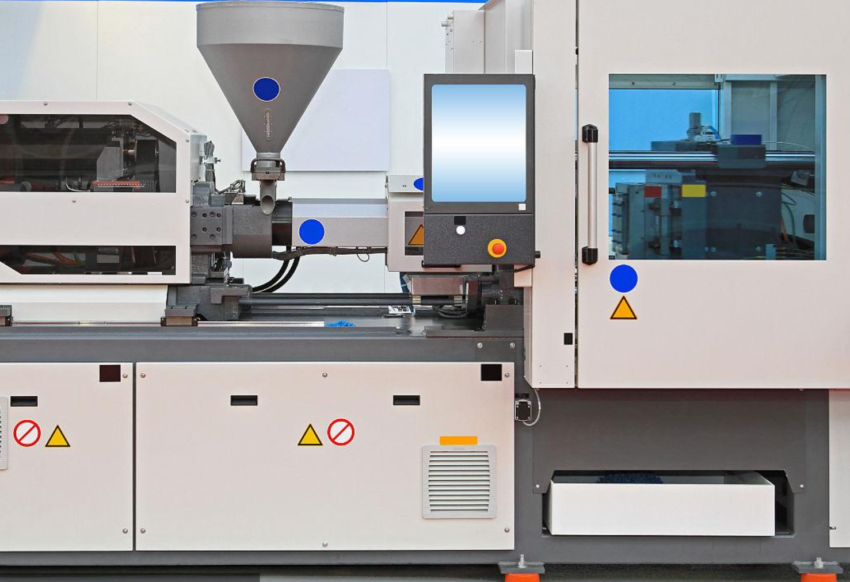Internet of Things (IoT) Technology and Applications in the Injection Molding Machine Industry

With the continuous development of technology, the Internet of Things (IoT) has been widely applied in various industries. In the injection molding machine industry, IoT technology is also gaining increasing attention. Let’s discuss IoT technology and its applications in the injection molding machine industry, as well as its impact on industry development.
I. Introduction to IoT Technology
The Internet of Things (IoT) refers to the network that enables communication and information exchange between objects through information sensing devices such as RFID, infrared sensors, GPS, and laser scanners. It involves the intelligent identification, localization, tracking, monitoring, and management of objects through predefined protocols, utilizing the internet for real-time data transmission and processing.
II. IoT Technology Applications in the Injection Molding Machine Industry
1、Remote Monitoring and Diagnosis
In the injection molding machine industry, IoT technology enables remote monitoring and diagnosis of equipment. Sensors installed on the injection molding machines can continuously monitor parameters such as temperature, pressure, and speed in real-time. These data are transmitted to cloud servers through IoT technology, allowing engineers to access the machine’s operating conditions from anywhere using smartphones or computers. Any anomalies can be detected promptly and appropriate actions can be taken. Furthermore, by analyzing historical data, equipment failures can be predicted, enabling proactive maintenance and reducing equipment downtime.
2、Production Process Optimization
IoT technology can assist injection molding machine companies in optimizing the production process. Real-time monitoring and analysis of various data during the production process can identify bottlenecks and issues, providing insights for process improvement. For instance, by adjusting parameters such as mold temperature, injection speed, and holding pressure, production efficiency can be increased, and product quality can be enhanced. Additionally, IoT technology facilitates real-time feedback on production data, helping companies adjust production plans promptly and improve resource utilization.
3、Energy Management
Energy consumption is significant in the injection molding machine industry, and energy efficiency is a crucial task for companies. IoT technology enables intelligent energy management for injection molding machines. Real-time monitoring and analysis of energy consumption can identify areas of energy waste, enabling companies to implement energy-saving measures. Furthermore, IoT technology can facilitate intelligent scheduling of equipment, allocating operating time based on production demands to reduce energy consumption.
4、Supply Chain Management
IoT technology can enhance supply chain management for injection molding machine companies. Real-time monitoring and analysis of logistics information, including raw materials, components, and finished products, enable transparent and collaborative supply chain management. For example, real-time monitoring of raw material inventory ensures a stable supply. Real-time monitoring of finished goods inventory allows timely adjustments to production plans, avoiding inventory build-up. Moreover, IoT technology can optimize supply chain scheduling, improving logistics efficiency.
III. Impact of IoT Technology on the Injection Molding Machine Industry
1、Improved Production Efficiency
IoT technology enables remote monitoring and diagnosis of injection molding machine equipment, reducing equipment downtime by detecting and addressing faults promptly. Furthermore, through process optimization and energy management, production efficiency and resource utilization can be improved. These measures contribute to enhancing the production efficiency of the injection molding machine industry.
2、Reduced Production Costs
IoT technology helps injection molding machine companies optimize production processes, implement energy management, and enhance supply chain management, leading to reduced production costs. Additionally, efficient supply chain management reduces logistics costs. These measures contribute to lowering production costs in the injection molding machine industry.
3、Enhanced Product Quality
IoT technology enables real-time monitoring and analysis of various parameters during the production process, aiding in the detection of issues and improving product quality. Moreover, by predicting and preventing equipment failures, product quality problems resulting from equipment malfunctions can be avoided. These measures contribute to enhancing product quality in the injection molding machine industry.
4、Facilitated Industry Upgrades
The application of IoT technology fosters technological innovation and industry upgrades in the injection molding machine industry. By introducing IoT technology, production processes can be automated, intelligent, and environmentally friendly, thus enhancing core competitiveness. Furthermore, IoT technology promotes the integration of the injection molding machine industry’s supply chain, facilitating the development of industry clusters.
In conclusion, the application of IoT technology in the injection molding machine industry holds significant importance. By enabling remote monitoring and diagnosis, production process optimization, energy management, and supply chain management, IoT technology contributes to improving production efficiency, reducing production costs, enhancing product quality, and promoting industry upgrades in the injection molding machine industry. With the continuous development and refinement of IoT technology, its application in the industry is expected to become increasingly widespread, injecting new vitality into the injection molding machine industry.


